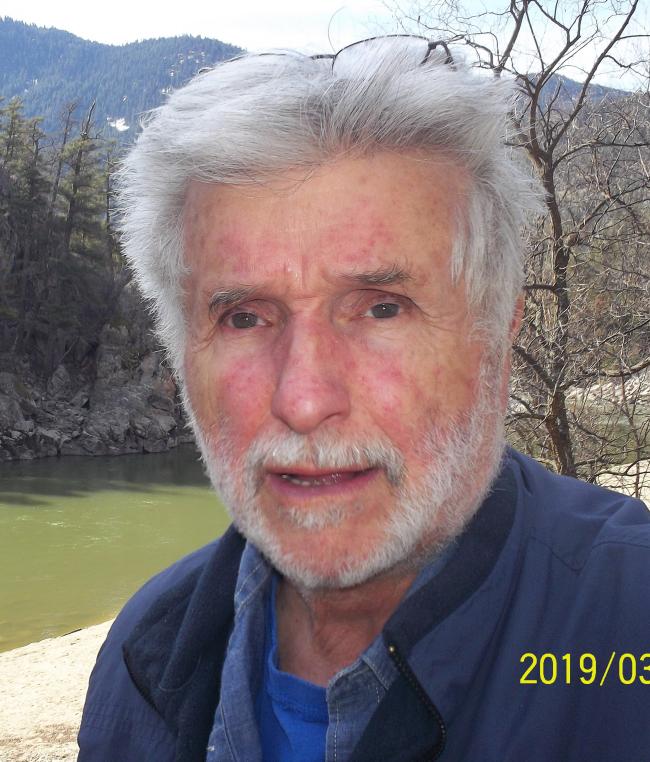Articles Menu

As a Minister of the Christian faith, with the United Church of Canada, I’m mindful of the duty to protest, if not resist, if and when civil authorities fail to provide due process and fair outcomes to grieving peoples.
I do not take this to mean that I have the right to disobey court orders anytime I might disagree with them.
I understand and appreciate the importance of our justice system – especially its checks and balances.
I had no intention of depreciating respect for our Courts, and to the extent that this was an unintended consequence of my action, I sincerely apologize.
Nor did I plan to get arrested or to breach the injunction.
I went to Burnaby Mountain on behalf of my particular Church and in a hopeful solidarity with the Tsleil-Waututh to recite a prayer or credo, ‘We Dare to Hope’, that the United Church of Canada had written in its commitment (to) for the inclusion of First Nations people in decision-making for all matters that affect them.
I went in response to invitations from the national United Church of Canada, regional First Nations People and ecclesiastical networks to which I belong.
I was also moved, with deep sympathy, to go on behalf of the Longhouse Ministry Church members and volunteers whom I serve (and some were present on April 28/18).
I pinned a copy of the ‘We Dare to Hope’ credo-prayer to the Trans Mountain gate and recited a summary of it in public.
It’s a long prayer so I’ll share only part of it, in an attempt to help (Your Honour) the Court understand the focus of my presence at Burnaby Mountain that day:
We believe in God
Creator of all that is within us and all that surrounds us
Shaper of the bonds between us as peoples and among the whole of creation
The beings that walk, that swim and crawl, that fly overhead
The beings that have sheltered us, sustained us, and silently watched over us for generations
We believe in the Creator of relationships meant to be lived out in equity, mutuality, and respect
Today we see that your creation is fracturing
The land seeks rest even as it labours to sustain us
Relations hurl threats at each other across political borders
Leaders assert that theirs is the only way
And the ones who are affected most by political decisions have no say in decision making
In a time of reconciliation, of binding up wounds, we fear an unraveling
We have pledged to bind up wounds together
Yet we do it so lightly that there is no healing
We say, “reconciliation, reconciliation”, but is there reconciliation?
It’s difficult to find a way to explain the anguish I felt after conveying those words publicly. I tried to explain some of it in writing in my affidavit.
But the core of my dilemma was this:
In that moment, I felt that not to act would have been a betrayal of our commitment to reconciliation. It would have meant relenting to an unfair, exclusive set of vested interests at all costs. The very opposite of reconciliation and justice.
My prior efforts to protest and influence any meaningful, socially just change had failed.
I did everything that was within my reach as a lay person.
I wrote letters, petitions, went to rallies and marches (and still do).
I participated in the electoral political process, where Prime Minister Trudeau campaigned in poetry — promising First Nations the right to consent and promising real action to address climate change — but has instead governed in back-tracking prose.
It’s a political pattern that’s repeated itself for decades, no matter what party has been in control. Some political scientists call this the “iron law of oligarchy”.
In the context of the climate emergency that’s worsening by the day, I felt an urgency to offer myself, however meekly and modestly, to interrupt an otherwise predictable outcome: an unnecessary end to our sustainable ways of life because policymakers pretend otherwise.
So, like a mosquito on the back of an elephant, I partook in a public act of solidarity to call for change — real change. Real reconciliation. Words backed by action. Changes in behaviour. Changes in perception.
For this, Your Honour, I ask for understanding of the Court and request that you allow me to serve my sentence in the community where there I have a decent, constructive chance to contribute, or failing this, apply any fine to worthy organizations such as the Canadian Ctre for Policy Alternatives.
Thank you for the opportunity to speak.